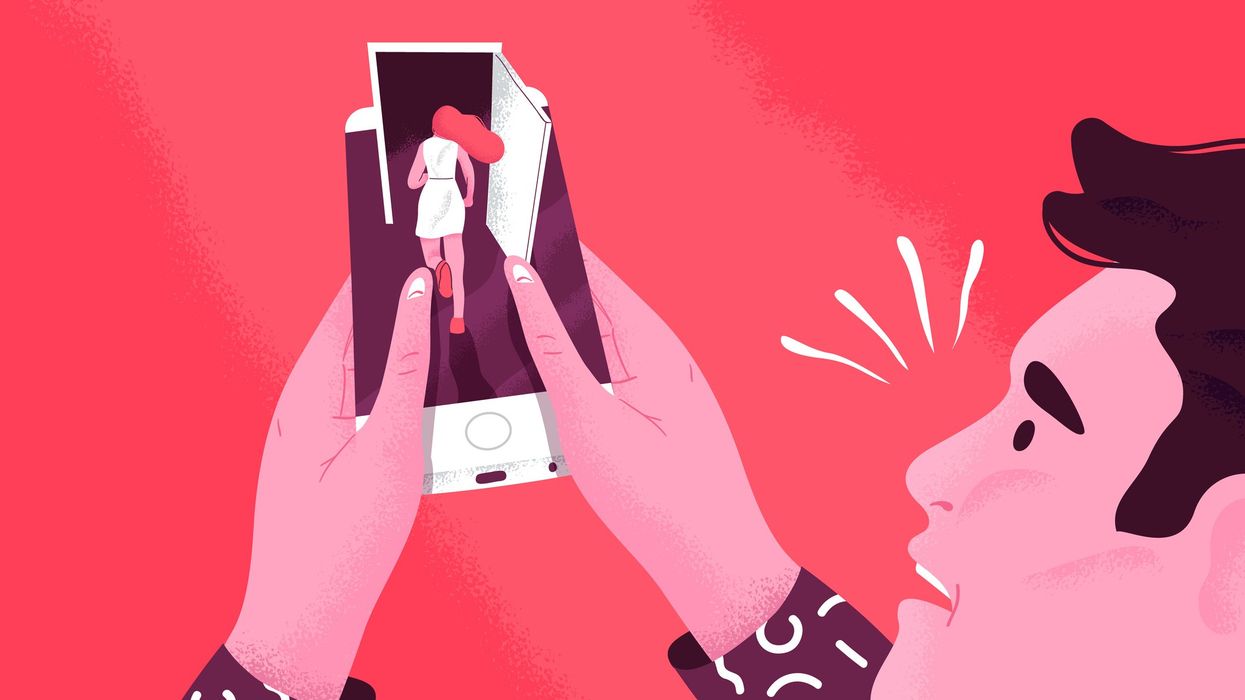
Dedraw Studio/iStock/Getty Images Plus

Have we seriously considered the ramifications of online dating?
“It’s convenient, but I like to see the things I’m buying in person before I spend my money on them.”
This is one of the most common complaints about the rise of Amazon and same-day delivery services. After all, we want to try on a pair of jeans before we buy them or physically see the apples at the grocery store so we don’t get bruised ones.
Dating and marriage should be a beautiful, loving process. But online, it becomes as predatory as LinkedIn.
But why doesn’t this same principle apply to dating?
In the digital age, online dating has become the standard method of meeting for adults seeking a serious relationship. Research shows that 10% of married adults in the U.S. met their spouses on a dating app, with that number rising to nearly 20% for those under 30. Further, 53% of people under 30 have used a dating app at some point.
This trend is no longer a rare, last-ditch attempt to find a partner, but has become the overwhelmingly normalized expectation for meeting a significant other.
At first glance, online dating seems harmless, if not beneficial.
It allows people to distinguish religious beliefs, physique preferences, and long-term relationship goals through a quick swipe through someone’s profile. This convenience can help prevent the awkward incompatibility of a butcher asking out a vegan.
But the cost of this commodity is authenticity. Fairy tales and rom-coms have a reputation for their tacky love-at-first-sight stories, where two people's eyes meet, someone tells a good joke, and a spark is lit between them. Many people's parents and grandparents met their spouses this way. For generations, high school sweethearts and chance encounters were the start of a typical love story.
The problem with online dating apps is that they take the humanity out of relationships. Individuals are trying to sell themselves, so they spend time crafting carefully manicured versions of themselves. They edit photos, reuse their friends’ witty one-liners, and leave out unattractive imperfections. Online dating is much more akin to a game of "Sims," where people become characters with hand-selected features who lack any shortcomings. Tinder users report going on two to four dates per week, often with different potential partners.
The process has become impersonal, with users trying to meet as many potential matches as possible in a desperate attempt to find someone who fits their desires.
This detached style of relationship-building has completely removed masculinity from dating.
It begins with a lack of courage. Dating apps remove the age-old anxiety of just going up and talking to her. Men no longer have to initiate face-to-face contact. Instead, they can send half-hearted text messages behind the comfort of their phones.
It’s a small change, but it has meaningful impacts. It symbolizes waning gallantry.
The removal of physical interaction creates a disparity between reality and fiction. About 57% of women under 30 have received unsolicited explicit messages on dating apps. Without the corporeal link between two individuals, it becomes much easier for men to jump into the murky waters of unchecked vulgarity. The male attributes of confidence and leadership are used in perverted ways that ruin the chances of building meaningful relationships as ordained by God.
It’s not the fault of men.
This is the exploitative nature of online dating. Dating and marriage should be a beautiful, loving process. But online, it becomes as predatory as LinkedIn.
Seeking out a partner should be about finding someone with similar values, shared experiences, and who gives you butterflies. Instead, online dating turns the process into another networking system. People must pull from a handful of photos, a bit of basic information, and a few brief sentences about hobbies to sum up their entire being.
This is why online dating looking a lot like online shopping. Now, people swipe left for the most insignificant offenses, which Gen Z calls "the Ick." It's a superficial process that doesn’t rely on creating a genuine connection. It only fuels the ego.
Online dating, however, does result in a significant number of long-term serious relationships — but fewer and fewer marriages.
As growing numbers of young people turn to apps to find their partners, marriage rates among this group have significantly fallen. Worse, the proportion of young couples who have children has reached almost historic lows in the U.S.
Traditionally, men have always been the leaders in a relationship. They’re the ones who get down on one knee; they’re the ones tasked with protecting and providing for their families. Online dating slowly chips away at cultivating these types of men.
Relationships are built on responsibility. Without the authority of masculinity, these relationships are increasingly less fruitful. People are more likely to live with their partners without ever getting married. And if a couple do marry, they’re less likely to have children.
The burden of responsibility is cast aside because masculinity’s value has been degraded.
Familial relationships are crucial to maintaining a healthy, balanced society. They are the building blocks of communities, the biblically ordained gift that structures Western civilization.
As online dating becomes the norm, it hides crucial elements of the human spirit. For all of human history, men learned to overcome their fear of the beautiful girl rejecting them by holding on to the hope that she might agree to a date. The uneasiness allowed for something holy to arise.
But the self-satisfaction created by flipping through people's profiles is the mark of an age held hostage by technology. If you don’t want the online food delivery service to leave bruised fruit on your doorstep, you should go to the farmers' market and pick some out for yourself.
Maybe while you’re there, you’ll walk by someone who seems nice and get the courage to go up and talk to her.
Brooke Brandtjen